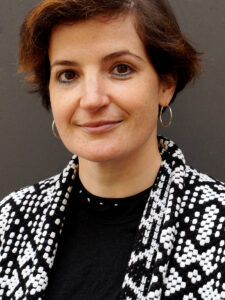“Don’t mourn, organise!” has become a mantra for British trade unionists over the last decade. Yet, in a political landscape where victories are few and far between, organising can take a brutal psychological toll.
In her new book Burnout: The Emotional Experience of Political Defeat, Hannah Proctor explores what it means for activists to confront feelings of hopelessness without giving up. Her brilliant book sets out to understand, in the face of it all, how we keep going?
The term “burnout” has become ubiquitous these days, with mental health charities declaring the UK a “burnt-out nation”. However, as Proctor reveals, its origins are actually in activism. The term was first coined in 1974 by psychologist Herbert J Freudenberger to describe “physical or mental collapse as the result of overwork”. His US-based research focused on people who, in the UK context, would almost certainly be UNISON members: volunteers in free health clinics and people working in “helping professions”, including social workers, healthcare professionals and librarians.
By Freudenberger’s original diagnosis, burnout is underpinned by the emotions we feel around our political ideals. He saw how people who felt emotionally invested in social justice, and dedicated their spare time to helping others, felt crushing guilt or disappointment. In other words, burnout isn’t just a case of working too hard; it’s when we’re doing our best to change an unfair world and we reach a point where it all feels like too much.

Proctor (pictured above) acknowledges that for many activists, herself included, mental health difficulties are an occupational hazard. While she attributes depression to the crushing conditions of capitalism and the uphill battle of trying to overhaul it, she is less concerned with its political causes than the effect it can have on political organising. “Stating that depression has social causes does not enable someone to throw a brick through them”, she writes. So, what does?
Falling apart together
The book is divided into eight short chapters, each of which confronts a different sort of distress that activists grapple with alongside burnout: melancholia, nostalgia, depression, exhaustion, bitterness, trauma and mourning.
From 1970s British feminists who struggled with their attempts to “live according to political ideals, in a world that makes it almost impossible to do so”, to Bolsheviks recuperating in Soviet sanatoriums, Proctor uses case studies across history to show us that burnout is a long-standing phenomenon. Yet, as the book progresses, a theme appears to emerge: the importance of holding onto each other within the collective; of caring for those who withdraw; of, as Proctor writes,“falling apart together”.
After all, the reason we are drawn to activism is because collective action, whether union meetings, protests or pickets, offers us relief in the knowledge that we aren’t the only ones who feel frustrated. There’s a reason why we keep doing this: the alternative would mean staying angry, but being alone.
Describing her own experiences of activism as “life-altering”, Proctor writes that our efforts to build the world we want to see have a “prefigurative energising capacity.” She cites cultural historian Luisa Passerini, whose research on Italian student activism in 1968 described people “passing from tormented and depressed isolation to feeling themselves part of a whole.”
A seasoned activist herself, Proctor is not naive to the ways in which our political homes can be a source of both hope and harm. The chapter on bitterness confronts the painful contradictions within activism, where groups end up reproducing the prejudices – like racism, sexism and ableism – of the societies they want to transform.
Studying interviews with U.S. Communist Party members, Proctor found instances where, “people who felt so deeply driven they devoted themselves to a moral cause on behalf of strangers nonetheless bullied their closest friends”. Acknowledging that the chasm between idealistic theories and messy realities can never be fully closed, she concludes that activists must do their best to balance both political urgency and interpersonal patience, recognising it is an ongoing, unglamorous process.
Mournful militancy
In Burnout, Proctor urges us to mourn and organise. The final chapter of the book explores “mournful militancy”, a term borrowed from AIDS activist Douglas Crimp. Proctor draws on examples from the AIDS movement and ACT UP, where activists who were committed to direct action also formed networks of care where clubbing, companionship and collective joy co-existed with sickness and death. These concurrent experiences of pleasure and grief provided emotional support within the movement, which meant “carers were also cared for”, and the group maintained its political focus without ignoring the very human emotions that were at the core of their community.
The book is crammed with these historical vignettes, intertwined with psychological theory. But Proctor’s combination of intellectual rigour and dynamic pace prevents Burnout becoming an overly academic text. Mirroring what she wishes to inspire in the reader politically, she gives careful consideration to heavy material while persistently moving forward.
It’s ironic that a book on political despair makes for such an invigorating reader experience. Activists will find strange comfort in knowing that burnout is a collective affliction that has loomed large over our social movements for centuries; distress is the cause, and also too often the consequence, of an activist’s desire to exist in a more liveable world. While its effects can be profoundly personal, it can unite us too.
Thanks to publisher Verso Books, three UNISON members can win a copy of Burnout. To put yourself in the hat, answer the following question: When was the word ‘burnout’ first coined?
Email your answer to editorial@unison.co.uk by 19 June. Please include your name and address and label the email ‘Book competition’.

